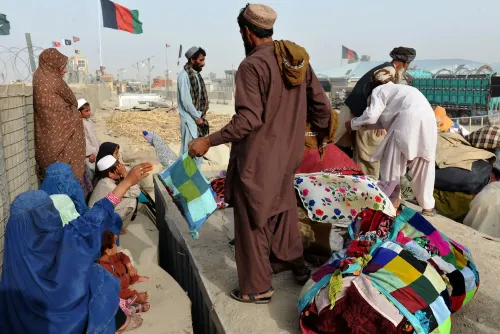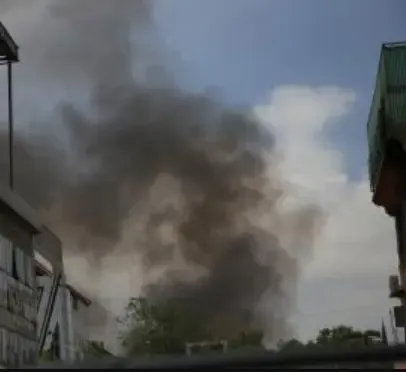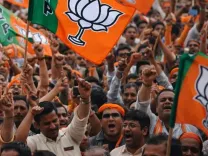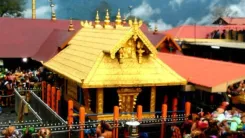Why did B'desh's Islamist leader walk free after acquittal in Liberation war crimes case?
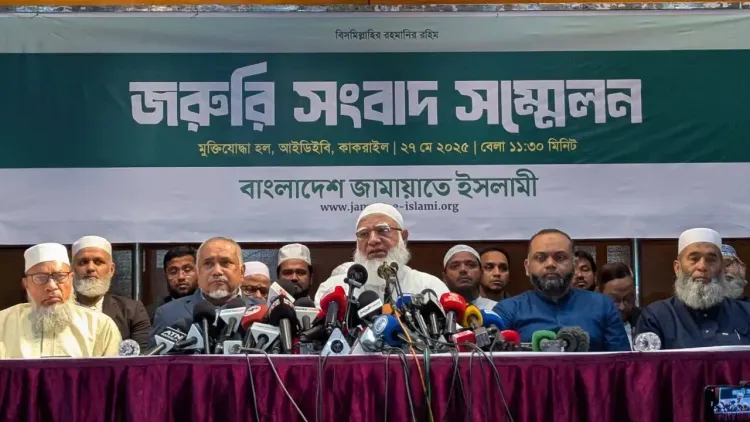
Synopsis
Key Takeaways
- ATM Azharul Islam has been acquitted of war crimes after 13 years in prison.
- The Supreme Court's ruling has ignited widespread protests.
- Violent clashes occurred between student factions in response to the acquittal.
- This case marks a significant moment in the history of Bangladesh's justice system.
- The decision raises questions about accountability for war crimes.
Dhaka, May 28 (NationPress) After being charged with crimes against humanity during the Bangladesh Liberation War of 1971, Jamaat-e-Islami leader ATM Azharul Islam was released from prison on Wednesday following the Supreme Court's acquittal of his death sentence.
This landmark decision was made on Tuesday, nullifying the death penalty imposed by the International Crimes Tribunal (ICT) in Bangladesh, sparking outrage amongst many in the violence-stricken nation, as reported by local media outlets.
After spending almost 13 years behind bars for war crimes, Azharul was greeted by party leaders and radical supporters at the prison gates. He proceeded directly to a rally at the Shahbagh intersection.
This marks the first instance of a war crime convict being acquitted through a review petition since the fall of former Prime Minister Sheikh Hasina's Awami League government on August 5 last year amid a violent uprising, according to Bangladeshi media outlet UNB.
Following Azharul's acquittal, clashes erupted between leftist student activists and members of Jamaat's student wing, Islami Chhatra Shibir, at Rajshahi University (RU) on Tuesday night, resulting in at least 10 injuries, local reports indicated.
Violence reportedly ensued when leftist groups, protesting Azharul's acquittal with a torch procession, were confronted by aggressive Chhatra Shibir members, leading to stone-throwing incidents.
RU Chhatra Union President Rakib Hasan accused Jamaat-e-Islami supporters, operating under the banner of the Anti-Shahbagh Alliance, of attacking a procession organized by the Democratic Student Alliance.
"The Democratic Student Alliance organized the torch procession to voice their dissent against Azharul's acquittal, which they feel jeopardizes the momentum of the 2024 uprising. During our march, around 200 Shibir activists launched a surprise assault on our group of 12 to 13. We faced multiple attacks, resulting in injuries to nearly all of us, with four sustaining severe injuries," reported The Business Standard, citing him.
Fuad Ratul, convener of the Socialist Student Front, stated, "Nearly everyone in our torch procession was hurt. Four of our leaders have visible injuries. We vehemently condemn and protest this assault following the verdict."
In August 2012, Azharul was arrested at his Dhaka residence in Moghbazar for crimes against humanity and remained in custody. In December 2014, the ICT sentenced him to death on five out of nine charges.
He was found guilty of orchestrating mass killings, abductions, and torture in the greater Rangpur region, where over a thousand individuals were killed in 1971.
Reports indicate that the Islamist leader inflicted torture, burned down hundreds of homes, and committed various atrocities during the Bangladesh liberation war.
Azharul challenged the verdict in January 2015. However, the Appellate Division, presided over by then-Chief Justice Syed Mahmud, upheld the death sentence in October 2019.
After the complete verdict was issued on March 15, 2020, he filed a review petition, which the Supreme Court accepted.
The Appellate Division, after reviewing the petition, granted leave to appeal on February 26, 2025, and requested the submission of the case summary, which was subsequently provided.
Following the appeal hearing, the court delivered its final judgment on Tuesday, acquitting Azharul of all war crime allegations.


